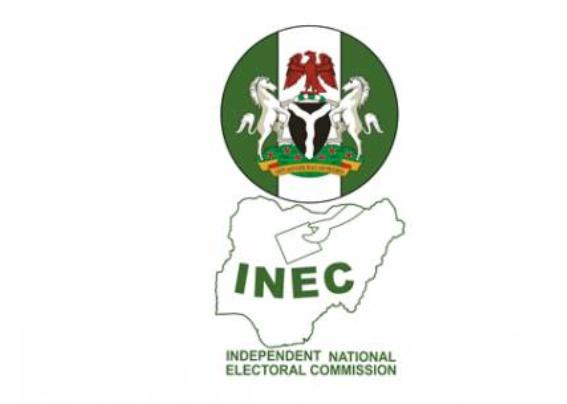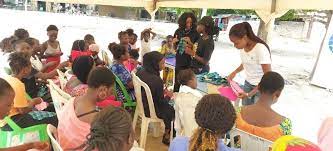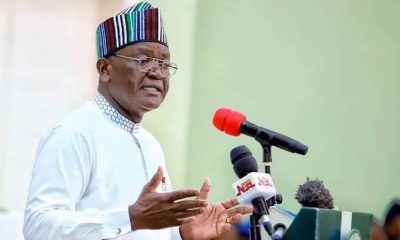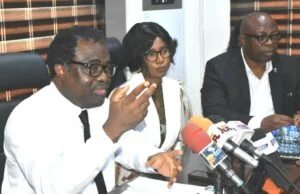OPINION
Four Biggest Losers of 2023 Nigerian General Elections

By Michael Owhoko
The real losers of 2023 Nigerian general elections are not the electorates who were deprived of their rights to freely choose candidates of their choice nor the first-timer youths who were disappointed by the Nigerian state, nor the candidates who lost as declared by the Independent National Electoral Commission (INEC).
The biggest losers are President Muhammadu Buhari; INEC Chairman, Professor Mahmood Yakubu; President-elect Bola Ahmed Tinubu; and Nigeria as a political entity. Except for Bola Tinubu who carries the burden of legitimacy arising from the flawed process and the total miniature votes garnered, the others will live with the scars and collective guilt slammed on the country by the ethical deficit in the delivery process of the elections.
With general disenchantment over the conduct of the 2023 Nigerian general elections by over 145,000 national and foreign observers deployed across the country, INEC failed to leave a split opinion on its capacity to conduct free, fair and credible elections, which is a development that will hunt Mahood Yakubu, Muhammadu Buhari and Nigeria for a long time to come. The exercise was not only a horrendous phenomenon on the psyche of Nigerians but a fleeting nightmare.
A consensus negative opinion on the flawed elections by observer groups from the European Union, African Union, Economic Community of West African States (ECOWAS), Commonwealth, The International Republican Institute (IRI), National Democratic Institute (NDI), Joint Election Observation Mission (IEOM), four former African presidents, and Transition Monitoring Group (TMG), is an affirmation of global skepticism about Nigeria’s reputation. They all concluded that the electoral process lacked transparency, which encouraged manipulations and undermined voters’ confidence.
This trust deficit was also highlighted by Chatham House when it declared that INEC had learnt nothing from its past failures. Specifically, it said, “The INEC’s performance and controversies over these results mean that the electoral reforms and lessons declared to have been learned were not fully applied and, as an electoral body, it was significantly less prepared than it claimed.”
As a consequence of these opinions, President Buhari might have missed the opportunity to etch his name in gold over his failure to provide a secure and enabling environment for free, fair and credible elections. As Commander-in-Chief of the Armed Forces, he failed to optimally use his offices, including through the effective deployment of the police, army, DSS, and other security agencies, to protect voters during the elections.
Nigerians were mortified by horrendous images of election violations, and no rationalisation could justify such criminal acts. An election where about 27 persons were killed nationwide over violence, ballot snatching, thuggery, voter suppression, ethnic bigotry, use of tribal gods and deities, even in the presence of security operatives in some instances, can only be a national shame.
Besides, whatever is left of Buhari’s legacy might have been further weakened by the naira redesign and currency swap policy, which brought untold hardship to citizens during period of the elections. Perhaps, the intention of the policy was to eliminate monetary inducement and vote buying, unfortunately, Buhari and the Central Bank Governor, Godwin Emefiele, were outwitted by politicians through the use of extra-constitutional and procedural means to contrive and achieve sinister objectives.
These assertions receded into irrelevance when INEC failed to comply with the Electoral Act and its own guidelines. The Electoral Act, 2022, requires INEC to upload the results of elections of polling units on to its portal as stipulated in Section 60 (5) and Clause 38 of the INEC Regulations and Guidelines.
Specifically, Clause 38 of the INEC Regulations and Guidelines for the Conduct of Elections, 2022 states: “Upon completion of all the Polling Unit voting and results, procedures, the Presiding Officer shall:-(i) Electronically transmit or transfer the result of the Polling Unit direct to the collation system as prescribed by the commission. (ii) Use BVAS to upload a scan of ES8A to INEC Result Viewing Portal (IReV), as prescribed by the commission. (iii) Take the BVAS and the original copy of each of the forms in tamper-evident envelope to the Registration Area/Ward Collation Officer, in the company of security agents. The polling agents may accompany the Presiding Officer to the RA/Ward Collation Centre.”
With non-compliance and deviation from these regulatory provisions, INEC opened the electoral process to manipulation, resulting in the lack of justice and fulfilment for voters.
These violations have exposed the gaps in the capacity of Mahmood Yakubu to deliver on a significant national assignment. This might cast aspersions on his reputation and capabilities. Indeed, this election is a minus for his reputation, as no government or serious organisation would wish to consider him for such important responsibilities in the future.
Unfortunately, the President-elect, Bola Tinubu, is a product of INEC’s flawed process, and this has triggered a legitimacy challenge that is further fueled by the lean number of votes secured at the election, relative to total votes cast. Tinubu polled 8.87 million votes (the least by any presidential candidate since 1999), representing 36.61% of total votes, and 10.08% of all eligible voters. Out of approximately 93 million registered voters, only about 25 million, representing 28.63%, actually turned out to vote.
Implicitly, Bola Tinubu was not only elected by a minority of voters when viewed against 25 million persons that voted. And in a country of over 200 million people, skepticism resulting from INEC’s multiple irregularities are unhelpful to his presidency. Perhaps, this accounts for the absence of national pomp and celebration that would have heralded his victory.
Without prejudice to the outcomes of the current litigation, going forward, Bola Tinubu should activate his social capital to open up channels to influential groups and personalities in the country, including his political rivals, in the effort to legitimise his presidency, and achieve unity the through formation of all-inclusive government.
INEC’s performance has also rubbed off on Nigeria’s image as a corrupt country. Through the foreign observers, perceptions of the international community about Nigeria as a corrupt country might have worsened on account of their opinions over the lack of transparency and operational failures that characterised INEC’s performance.
In the 2022 Transparency International’s (TI) Corruption Perception Index (CPI), Nigeria was ranked 150 out of 180 countries, and also placed as second most corrupt country in West Africa. By INEC’s standard and performance, it has unwittingly further confirmed Nigeria as a corrupt country, and deepened global negative impressions.
Nigeria lost the opportunity to demonstrate before the world its preparedness to be a leading light in Africa and world affairs, using the elections as a spring board to exhibit its leadership potentials and capacity. Hopes for these attainments have, however, been frustrated and shattered by INEC.
Besides, with the world’s attention on Nigeria, as connoted by presence of foreign observers, the country should have used the elections as a public relations tool to strengthen the country’s image through the conduct of free, fair and credible polls under a transparent atmosphere. This would have left foreign observers rattled about Nigeria’s new values and ethical orientation.
It was an event Nigeria should have used to shore-up its dwindling reputation. It is more effective than image-laundering programmes whereby huge amounts of money in foreign currencies are budgeted for public relations and reputation management. With a good image, Nigerians’ dignity and respect would be restored, and this would have largely put an end to discrimination at border posts in foreign countries.
This experience should serve as a lesson on the need to be transparent in the conduct of future elections. Former American president, Jimmy Carter, who was in Nigeria in the past to observe elections, vowed never to observe elections in Nigeria again after his ugly experience of the brazen violation of the electoral process. He was upset with the impunity with which politicians used thuggery to deprive electorates from freely voting for candidates of their choice.
It is hoped that Nigeria will not allow a repeat of this ugly experience. It is time to make political offices unattractive to discourage desperation, which is the underpinning motive for all these electoral atrocities. The electoral body should be reformed and repositioned with people of integrity as drivers aimed at restoring electoral integrity.
Mike Owhoko, a Lagos-based journalist and author, can be reached at www.mikeowhoko.com.
OPINION
Period Poverty: Prioritizing Menstrual Health in Nigeria’s Policy Agenda

By Halimah-Sa’dia Nuhu Sanda
As a predominantly healthy biological phenomenon and the most universal and peculiarly womanly experience, menstruation should not be a barrier to education or hinder a girl’s ability to participate fully in daily life. Yet for millions of women and girls in Nigeria, it does.
In fact, every month, thousands of adolescent girls and women in the world struggle to cope with their monthly periods.
This is because many of these girls cannot afford or access appropriate menstrual products and depend on crude, improvised materials for managing their menstruation, such as bits of old clothing, foam mattress, toilet paper, leaves, and banana fibers. These improvisations are ineffective and uncomfortable.For many girls, the first experience of menstruation is associated not with knowledge and understanding of the normal biological process but with confusion, shame, and a poor quality of information on how to deal with it. Even today, the menstrual process is heavily stigmatised in Nigeria, preventing girls from engaging in regular activities.
A lack of decent sanitation and menstrual hygiene facilities in schools creates barriers to attendance even for girls who can afford supplies at home. Every girl deserves the opportunity to pursue her education and develop to her full potential without the restrictions that her biological cycle imposes.
With a combination of frequent, embarrassing leaks, a susceptibility to recurrent infections, the stigma surrounding menstruation, and the lack of proper information and sanitary materials available, millions of girls and women experience their monthly period as something that prevents them from engaging in daily life, often compelling girls to miss school or discontinue their studies entirely. In a nation where education is broadly accepted as a form of empowerment and socioeconomic growth, the implications of menstrual inequity are particularly insidious.
The bottom line is this: menstruation should be a normal fact of life, not an ailment that steals girls’ futures. However, ensuring menstrual equity for the emerging generation of Nigerian girls and women is more than just a question of rights; rather, it is one of the most dynamic investments Nigeria can create in its development, economics, and human capital. But perhaps the most essential component is that the hideous ripple effects of period poverty on girls’ education amplify gender inequalities and inequities across all spheres.
In January 2020, the Nigerian government took a significant step toward achieving menstrual equity. Sanitary towels, pads, and tampons were exempted from the value-added tax as part of the new Finance Bill signed by then-President Muhammadu Buhari.
According to the statement of the Office of the Vice President, the Nigerian government said, “In a bid to ensure that the cost of living does not rise for Nigerians because of the changes in the Value-Added Tax, several basic food items, locally manufactured sanitary towels, pads have been added to the exemption list.”
This act on the part of the government aimed at relieving financial burdens on women and girls, especially those from economically disadvantaged backgrounds, was an acknowledgment of the natural entitlement to manage periods in decency. Girls and women have a human right to menstrual dignity, and no government should be able to tax our periods by making feminine hygiene products a luxury. For too long, the combined costs of sanitary products and taxes have placed an unfair financial burden on Nigerian girls and women simply for being female.
While the introduction of lower prices for sanitary products is commendable, the harsh reality persists: far too many girls are still unable to access basic menstrual hygiene products due to the financial constraints it imposes. UNICEF estimates that one in ten girls in sub-Saharan Africa misses school during her period; at the same time, as much as 20 per cent of the school year is missed as a direct result of menstrual poverty.
The 2013 National Demography and Health Survey data (NDHS) says about 60 per cent of the 10.5 million out-of-school children in Nigeria dropped out due to period poverty. When adolescent girls are forced to miss weeks of school each year simply for experiencing their periods, their academic performance deteriorates, their economic prospects become bleak, and the resulting ripples can throw their whole future trajectories off course.
The World Bank’s report “A Better Future for All Nigerians: Nigeria Poverty Assessment 2022” estimates that nearly two out of five citizens live below 1.90 U.S. dollars per day as a national poverty line. In contrast, 2019 data from the National Bureau of Statistics shows that 40 per cent of the population in Nigeria—almost 83 million people—lives below the national consumption poverty line, which is N137,430 ($134.73) per annum.
With an average pad price of N550 and the current economic crisis, which has exacerbated the socioeconomic vulnerabilities faced by the poor on all fronts, including the menstrual hygiene crisis, this crisis has never been more pressing.
Studies have shown a correlation between infant mortality and maternal education in developing countries. A 2013 study found that an increase in maternal education could reduce infant mortality rate by 51.2 per cent. According to UNICEF, children of uneducated mothers are 2.8 times more likely to die before the age of 5 compared to those whose mothers have a secondary education.
Another 2019 study in India revealed that infant mortality was 51 per cent higher among children of uneducated mothers. Meanwhile, the 2018 NDHS showed that infant mortality is at 67 deaths per 1000 for mothers with no education, compared to 36 deaths per 1000 for mothers with secondary or higher school education.
This overwhelming evidence indicates that increasing access to education for girls is an effective way of saving the lives of infants in developing countries. An educated mother is less likely to have high-risk pregnancies, more likely to practice essential newborn care, and better prepared to make informed choices about her sexual and reproductive health. If we help our girls and women manage their menstruation easily while keeping them in school, we empower them to become society’s driving forces of change. Quite simply, educated women raise healthier societies.
Many individuals and organisations have undertaken various initiatives to tackle this problem. In 2018, UNICEF, with financial assistance from Canada, trained 40 girls from four senior high schools in Osun State on the production of reusable sanitary pads. There are organisations such as the Pad-Up Foundation and Pad A Girl Foundation. Yet much more funding and nationwide scale are needed to deliver menstrual equity as a norm, not an exception, across the country.
Although the VAT exemption was a step forward, it’s time to redouble our efforts on guaranteeing menstrual dignity to all women and girls. As things stand, there are still systemic barriers preventing the country’s poorest menstruating populations from achieving it.
Experience in other countries has shown that free provision of sanitary pads and tampons in schools, alongside menstrual health education, can be both revolutionary against period poverty and keep a whole lot more girls at school. Subsidizing local production of low-cost, reusable sanitary pads can make them more affordable and sustainable while also giving women entrepreneurs an economic opportunity to create some wealth.
With tight budgets and a lot of development needs, some people may question if sanitary products deserve our top priority, and critics may even argue that handouts create dependence. It is imperative to realise that menstrual equity is not only a woman’s issue; it is a social matter that demands urgent attention.
Every girl has the right to study and the ability to achieve her potential, free from the restrictions imposed by her biology. Therefore, it should be viewed as a right of humanity, not charity. It is an investment in human capital that will appreciate, producing generations of healthier, better educated, and more economically productive Nigerian women.
Half the earth’s population is born with this biological characteristic. By treating period poverty as equally important to public health as other key social determinants, Nigerian leaders will be striking a powerful chord for gender equity. With affordable sanitary protection and education, Nigerian girls will no longer have their dreams and futures derailed each month by something as fundamental as their own biology. The future productivity, wealth, and empowerment of Nigerian girls and women merit such an investment.
Halima Sanda wrote from Kano
OPINION
Yahaya Bello and a Complicit Judiciary

By Chidi Anselm Odinkalu
Josiah Majebi is the fifth Chief Judge of Kogi State (in north-central Nigeria) in four years and the fourth to exist almost entirely in the pocket of the state governor. He has been in office as substantive Chief Judge since the beginning of February 2023, having acted in that role since 26 June 2022 when his predecessor, Richard Olorunfemi, retired.
Henry Olusiyi served in that office for just under seven months from the end of June 2020 until January 2021. Sunday Otuh, who succeeded him, spent eight months in office before retiring in September 2021.The last Chief Judge of Kogi State who attempted to hold that office with dignity and independence, Nasir Ajanah, paid with his life, un-mourned and exiled from the state.
He was the second Chief Judge of the State to be politically lynched by the government of Kogi State in one decade.At the beginning of April 2008, the Kogi State House of Assembly, defying an order of the state High Court, adopted a resolution asking the State Governor to remove long-serving Chief Judge of the State, Umaru Eri. On that basis, then acting governor, Clarence Olafemi, promptly announced the sack of the Chief Judge on 2 April 2008 and designated another judge, Sam Ota, to act in his place.
In his defence, Umaru Eri claimed that his crime was that he had declined the request of the politicians to act as go-between in bribing the election petition tribunal on behalf of the then state governor whose election was in dispute. On 16 May, 2008, Alaba Ajileye, a judge of the High Court of Kogi State, reversed the sack and reinstated Umaru Eri.
Eleven years later, on 18 June 2019, Alaba Ajileye presided again in deciding a case that seemed uncannily to reprise issues in his earlier decision. As with the 2008 decision, the claimant in 2019 was another Chief Judge of Kogi State, Nasir Ajanah with his Chief Registrar, Yahya Adamu. The defendants included the Kogi State House of Assembly, its Speaker, and the State Governor, Yahaya Bello.
At the directive of Governor Yahaya Bello, the Secretary to the Government of Kogi State wrote on 14 November, 2018 to Chief Judge Nasir Ajanah, asking him to provide “the payroll of judicial staff for the ongoing pay parade of civil servants in the state.” At the time, the Governor was a defendant in the court of the Chief Judge, so the Chief Registrar responded to the letter and explained that the judiciary was a self-accounting and co-equal branch of government supervised by the state Judicial Service Commission.
An affronted Governor Yahaya Bello wrote under his own name to Walter Onnoghen, then Chief Justice of Nigeria and Chair of the National Judicial Council (NJC), asking the NJC to find the Chief Judge guilty of misconduct and requiring that he “step aside and (an) Acting Chief Judge allowed to take his place.”
While his petition was still waiting for the attention of the NJC, Yahaya Bello resorted to political self-help. He referred the perceived effrontery of Nasir Ajannah to the State House of Assembly, which promptly constituted an investigation committee. The Chief Judge sued. While his suit was pending, on 2 April 2019, the State House of Assembly adopted a resolution asking Yahaya Bello to remove the Chief Judge and also requiring disciplinary action against the Chief Registrar.
On 18 June 2019, Alaba Ajileye sitting as the High Court of Kogi State in Kotonkarfe, determined that the Kogi State House of Assembly and the Governor acted unlawfully in seeking to remove the Chief Judge.
The reaction of the governor was bestial. He first went after Alaba Ajileye, a man of courage and learning whose judicial record was unblemished. With a doctorate degree in law, Alaba Ajileye was an expert in the rarefied subject of digital evidence. Following this judgment, however, Yahaya Bello’s government made it known that they could no longer guarantee his safety.
Yet, when he was put forward for elevation to the Court of Appeal, the same Kogi State government actively blocked it. A man who would easily have adorned the Supreme Court with distinction, Alaba Ajileye retired from the High Court in February 2023 and has since then forged a career as a scholar and academic.
Turning to the State Chief Judge, meanwhile, Yahaya Bello made life unbearable for Nasir Ajannah. He began by banishing the man from official state functions. When Chief Judge Ajannah attended the swearing in of the new Grand Khadi of Kogi State on 21 May 2020, the Chief Security Officer to Yahaya Bello informed him that “the governor gave a directive that he should not be allowed to attend the function.”
In the middle of the COVID-19 pandemic, Governor Yahaya Bello made Nasir Ajannah persona non-grata in the state. As a result, he was forced into internal displacement in Abuja, where his personal arrangements were worse than transitory. While in hiding in Abuja, Nasir Ajannah contracted COVID and died in isolation in Gwagwalada in the Federal Capital Territory on 28 June 2020. His death went unacknowledged and even the institutions of the judiciary were reluctant to mourn his passing.
The men who followed Nasir Ajannah in the office of Chief Judge of Kogi State learnt to stoke the vanities of Yahaya Bello and avoid his anger. Ahead of his departure from office at the end of eight years as governor of Kogi State in January 2024, Josiah Majebi as Chief Judge and Chair of the Kogi State Judicial Service Commission, prepared a list of candidates for nomination as judges of the High Court of Kogi State.
At the top of the list was a wife to Yahaya Bello the basis of whose claim to the nomination was the dutiful fulfilment of the duties of connubium in Yahaya Bello’s bedroom. For the Chief Judge, it was also proof that he had truly abjured any pretensions to a mind of his own.
Alarmed at what they saw as perversion of the system of judicial appointments, a group of seven Senior Advocates of Nigeria (SANs) from the State wrote to Josiah Majebi to dissuade him from this course of action. In January 2024, they sued challenging his judicial nominations. Pending the outcome, the NJC suspended the process of appointment to the Kogi State judiciary.
On 18 April 2024, James Omotoso, a judge of the Federal High Court in Abuja many of whose judgments usually have something of a smell problem about them, implausibly ruled that these SANs had no legitimate interest in the process of appointment of judges in their state and that, in any case, the discretion of the NJC in appointment of judges was effectively not open to review.
It was the day after Yahaya Bello’s chosen successor and blood relative, Usman Ododo, chose to turn his predecessor into a fugitive from legal process and two days after Mr. Ododo opened his case in the petition questioning the lawfulness of his election as governor of Kogi State.
As a bungling Economic and Financial Crimes Commission (EFCC) waited to arrest Yahaya Bello in Abuja, one I.A. Jamil, a judge of the High Court of Kogi State, issued an order claiming to restrain the Commission from doing its job.
According to the order of the judge, the case which was filed over two months earlier on 8 February, was hurriedly assigned while the siege was on going in Abuja, argued, heard and decided and the judge quickly signed the order and handed it to Governor Ododo to take with him to Abuja from where he spirited his cousin away from legal process in a blaze of gunfire. The court was almost assuredly disingenuous about the date of filing. In all likelihood, the case was filed same day on 17 April and then back-dated.
The EFCC now claims it has declared Yahaya Bello a fugitive but the real question will be how a compromised and complicit judicial leadership will now treat the nomination of his unqualified wife as a judge and the petition against the declaration of his violent cousin as governor of Kogi State. The judges who currently control Nigeria’s criminal politics now must show how much they owe Yahaya Bello.
A lawyer and a teacher, Odinkalu in can be reached at chidi.odinkalu@tufts.edu
OPINION
The Naira Abuse Palaver

By Dakuku Peterside
There is no disputation that naira abuse or more specifically the act of spraying money at social events has become an acceptable norm or cultural practice in Nigeria. Nigerians have a cultural affinity for lavish social gatherings. Many people regard these occasions as avenue for displaying social statuses and wealth.
Spraying naira notes, and other currency notes, at events progressively appear to be the ultimate way to flaunt one’s social standing.Even burials that are supposed to be sober moments have been turned into considerable fanfare. This has created a new industry of mint note trading and events management. All of these constitute the social infrastructure of naira abuse.
A new dimension to this abuse has been the arrival to the scene of the dodgy nouveau rich. Society has labelled these folks through all sorts of nomenclatures, such as: Yahoo Yahoo, Yahoo Plus, and 419.Nigeria has since recognised the dangers of naira abuse but that is not the focus of this piece. The government has made rules and laws to check it and provided enlightenment campaigns to educate people on the ill. The Central Bank of Nigeria (CBN) gave naira abuse as one of the reasons why it is pushing for digital-based financial transactions. Naira abuse, like its ancestor – the social epidemic of corruption, has remained stubborn and refused to go away.
There is, however, ambiguity about what constitutes naira abuse. Section 21 of the Central Bank of Nigeria Act of 2007 clearly defines naira abuse and prescribes various punishments to deter citizens from engaging in it. The abuse includes: spraying banknotes at events; writing on banknotes; stapling banknotes; tearing banknotes; dancing or stumping on naira notes; defacing bank notes with substances or ink or oil; selling banknotes; the mutilation of naira notes; and creating money bouquets.
However, there has been a pervasive laxity on the enforcement of the law. It is generally though that the laws against naira abuse are either symbolic or desuetude, because no one is held accountable for it; everyone gets away with it.
The social phenomena of naira abuse, especially the spraying of money, have become epidemic in Nigeria. Lately, the abuse is of significant concern. We have exported it to many parts of the world, and social media is replete with evidence of this in weddings and other social events attended by Nigerians in different parts of the world.
Malcolm Gladwell’s book, The Tipping Point: How Little Things Can Make a Big Difference explores the idea that social phenomena, like trends and epidemics, often reach a tipping point where they suddenly become widespread. He identifies three key factors that contribute to this tipping point: the Law of the Few (the idea that a small number of people have a disproportionate influence), the Stickiness Factor (how messages or ideas stick in the minds of people), and the Power of Context (how the environment influences behaviour).
Through engaging anecdotes and research, Gladwell illustrates how understanding these factors can help individuals and organisations create or manipulate trends and epidemics. The book emphasises the importance of paying attention to small details and understanding the social dynamics behind spreading ideas and behaviours.
The fundamental concepts of the book in relation to naira abuse are twofold. First, the cultural context or external environment provides the soil for bad or good behaviour to grow and spread. Second, key people with remarkable personalities can cause or stop social epidemics because of their social profile or social network.
There is a link between the recommendation of Malcolm Gladwell and the arrest and prosecution of Idris Okuneye, better known as Bobrisky, a cross-dresser and social influencer, for naira abuse, and the arrest and ongoing prosecution of Cubana Chief priest (Pascal Okechukwu), in connection with naira abuse. Why selectively arrest the duo when everybody is involved in some form of naira abuse or the other, either by trampling on, spraying, mutilating or rumpling our banknotes? The truth is that it is nearly impossible for any law enforcement organisation to find and apprehend every perpetrator of this offence. Resources exist in limited supply. It is simple wisdom to begin with people who have disproportionate influence. This is perhaps what EFCC has done.
The first common ground is that both of these prosecuted celebrities enjoy considerable social media influence, whether for positive or negative reasons, depending on personal value systems. These two cases, though similar, are following different paths.
Bobrisky, in court, pleaded guilty and has since been handed a six-month imprisonment. Cubana Chief Priest did not plead guilty, so his case will go to full trial, putting the law to the test. This court case will assist us in providing answers to some critical questions: What are the societal ramifications of naira spraying, and how can naira misuse be proven? Is there need to amend the existing law and make it more relevant to the challenge? Will this fresh wave of enforcement stop the epidemic of naira abuse?
Regardless of how the legal proceedings turn out, they have highlighted how important it is to take the triplet societal plague of poor social behaviour, naira abuse, and their ancestor – corruption, very seriously.
I have identified six pillars for controlling or stopping naira abuse: Fight corruption because it is an enabler of abuse of the naira. The incestuous relationship between corruption, illicit financial transactions and naira abuse is well established.
Second, the government should deepen knowledge and change people’s orientation by embarking on mass enlightenment, as people must understand clearly what constitutes naira abuse and what the punishment is for the offence.
Third, address cultural issues relating to naira abuse through community engagement. People gifting money to celebrants at occasions is no crime but the manner of gifting has become the issue.
Fourth, government should renew the push for digital transactions.
Fifth, government must strengthen the structures of law enforcement. It is not just a police and EFCC matter. The judiciary must upend its knowledge on the subject matter.
Sixth, government must be impartial and objectively enforce the law to change cultural norms and public behaviour that defaces the naira. This may entail revisiting and improving the law.
The CBN, Police and the EFCC should study different models of changing public behaviour and draw up a model and strategy to deal with the issue of naira abuse, especially since it has become embedded in some cultures. Good examples abound abroad and in Nigeria. The British government employed various strategies to change public behaviour regarding spitting and other personal vices. Spitting in public places was prohibited through by-laws or municipal regulations, but it is social persuasion that finally gave the result.
These laws serve as deterrents and can result in fines or other penalties for offenders. They launched public awareness campaigns, collaborated with community stakeholders, and monitored and enforced the law.
However, most of all, they leveraged social norms and peer pressure to influence behaviour and encourage individuals to conform to accepted standards of behaviour by highlighting the societal consensus against spitting and certain destructive behaviours, while showcasing positive role models who embodied desirable conduct.
A model that seems to be working in Akwa Ibom State is the State Ethical and Attitudinal Reorientation initiative. Before 1999, the Akwa Ibom people experienced a severe social epidemic, “The pervasive and prevalent house help syndrome,” which gained widespread notoriety and led to the dubbed moniker, “Ekaette” for nearly every female domestic helper. The administration of Obong Attah took up the task of reorienting the Akwa Ibom people’s mindset. He established the Ethical and Attitudinal Reorientation Commission (EARCOM) and gave it the responsibility of raising public awareness about the importance of “minoring” vices and “majoring” in moral principles.
The struggle has persisted throughout the regimes, and Pastor Umo Eno’s present administration appears to be taking it to newer, more profound heights by hiring assistants for each ward and unit, and charging them to carry out the Commission’s work of value reorientation in remote areas.
The success story of Akwa Ibom is a model that the Federal Government can replicate. Changing public behaviour requires a multifaceted approach that combines legislation, education, community engagement, social support and enforcement efforts. By addressing the underlying factors contributing to undesirable behaviours and promoting positive alternatives, governments can effectively shape public attitudes and foster a more socially responsible society.
Peterside is a public sector turnaround expert, leadership coach, public policy analyst and columnist.



























